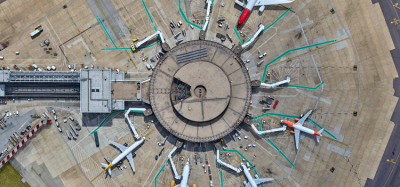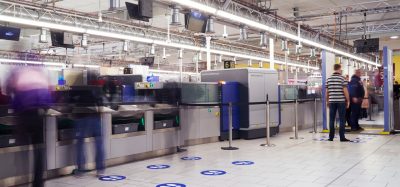Normalising intelligent artificial voice systems in airports
- Like
- Digg
- Del
- Tumblr
- VKontakte
- Buffer
- Love This
- Odnoklassniki
- Meneame
- Blogger
- Amazon
- Yahoo Mail
- Gmail
- AOL
- Newsvine
- HackerNews
- Evernote
- MySpace
- Mail.ru
- Viadeo
- Line
- Comments
- Yummly
- SMS
- Viber
- Telegram
- Subscribe
- Skype
- Facebook Messenger
- Kakao
- LiveJournal
- Yammer
- Edgar
- Fintel
- Mix
- Instapaper
- Copy Link
Posted: 7 June 2017 | Robert Hazeleger | Business Development & Marketing Manager | Aviavox, Roy Manuell | Junior Editor | No comments yet
What are intelligent artificial voice systems and how might they benefit airports? Robert Hazeleger Business Development & Marketing Manager at Aviavox investigates…


How might intelligent artificial voice systems revolutionise the airport and aviation industries?
Nowadays, the boarding process already starts at home, where passengers book their flights and check themselves in, long before they arrive at the airport. Airports are steadily fading out the staff-operated check-in counters. Completely automated self-serving boarding gates are not far away; they are the next step in optimising the logistical and operational chain.
But what about the passengers?
With the decrease in staff numbers due to new technologies and operational innovations, it is essential that airports use intelligent communication systems not only to support the speed of passenger throughputs, but also to satisfy the passengers’ feelings of ‘being noticed’. AviaVox has intensively studied how it can contribute to improve this ‘personal’ guidance, and has developed software that can predict the nationality of passengers in certain congestion-sensitive areas.
It is essential that airports use intelligent communication systems
The AviaVox systems continuously monitor the data from the Airport Operational Data Base (AODB), and decide in which languages announcements are to be made in order to improve the process efficiency and address passengers on a more ‘personal’ level.
At London Luton Airport for example, Polish passengers are automatically addressed in their native language during security checks. This not only makes them feel more at ease, but also generates a much better response to safety instructions, which significantly speeds up the security process. This is done only within a time window when a certain percentage of travellers is expected to be Polish; when this is no longer the case, the system automatically falls back to its default values. And Polish is just one example: AviaVox already has over 30 modern languages available.
What is Aviavox specifically working on at present?
Besides the ongoing support of existing customers, the continuous implementation of new customers and the development of additional languages, AviaVox is committed to play an essential role in the development of the so-called “smart airport concept”.
AviaVox expects Artificial Intelligence and big data to play a big role.
Within the industry there is wide consensus that new (mobile) technologies will more and more make air travelling a personal experience, using apps for personalised and/or customised guidance.
What would you say to those wary and afraid of artificial intelligence entering the job market?
The annual growth of the number of passengers is enormous: the International Air Transport Association (IATA) expects 7.2 billion passengers to travel by plane in 2035, almost double the 3.8 billion air travellers in 2016.
IATA expects 7.2 billion passengers to travel by plane in 2035, almost double the 3.8 billion air travellers in 2016.
This means that handing over parts of the operations to the passengers and providing them with tools to cut manual guidance by the airport staff is essential to increase efficiency and prevent a total congestion. In this process jobs might shift and change due to automation, but the number of jobs will certainly not decline.
Are there any challenges that face the technology? If so how is Aviavox striving to combat these?
The development of so-called text-to-speech technology is in full motion, although at this moment not good enough to meet the AviaVox quality standards. The same can be said about automated translations.
AviaVox expects Artificial Intelligence and big data to play a big role in this development, and continuously conducts research to look for implementation possibilities within the aviation industry.
Finally, imagine we are having this conversation in five years’ time… what do you hope to have changed in the aviation and airport industry?
Personalised guidance for all passengers in their native language, both visual and audio.
AI is certainly an exciting concept that has the potential to radically alter the airport and aviation industry. For more information on other trends set to revolutionise the industry, click here.
Related topics
Air traffic control/management (ATC/ATM), Apps, Big data, Information technology (IT), New technologies, Terminal operations


















